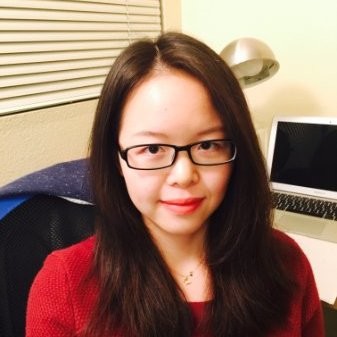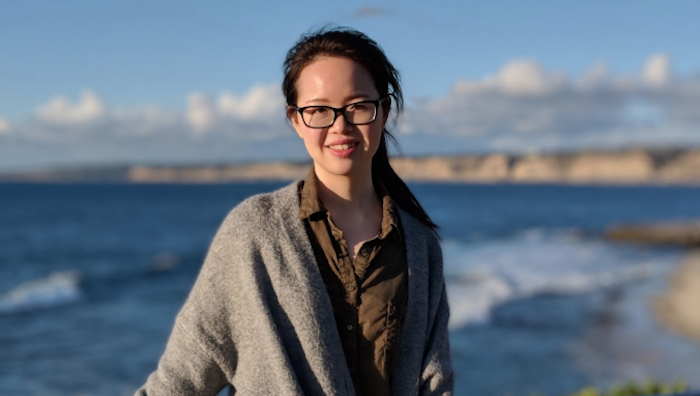Coding Conversations: Pursuing Personal and Career Development
It’s been almost two years since I joined LinkedIn. Previously, I had studied communication systems for six years and then moved on to work on phone chips for two years at my dream company. But things changed in 2015, and the company where I was working was affected. I saw one of my teammates get laid off and I was uncertain and worried about my own future—should I look for a change, or just await my fate?
I knew this was just the start of my career and that I still had time to start over. I asked myself, if given the opportunity to choose again, what other path would I pursue? To be honest, I did not have a clear goal at that time. The only thing I felt could possibly change my situation was a career shift, so I began to study computer science fundamentals, learn about system designs, and practice solving problems. This was not easy, as I was still employed full-time at my embedded software engineer job, and had to leave my career transition preparation for after work hours.
I thought about giving up more than a hundred times, especially when I was rejected by some companies. But luckily, all my efforts finally paid off when I was hired as a software engineer on the Data Infra team at LinkedIn. However, that was not the end of my learning journey. Since joining the company, I’ve been been challenged and stretched in new ways in both my professional and personal life. While it can sometimes be uncomfortable to undertake such a big change, I’ve found immense benefit from diving in and working on areas that I wanted to improve.
Tackling the technical unknowns
I currently work on the Data Infra team on an open source project called Azkaban, which is a workflow scheduler for batch jobs in the Hadoop ecosystem. Before joining the team, I’d never written any project in Java or Python before. I had no experience with distributed systems or big data, and was not familiar with any “git” command in the open source world. For these reasons, it was tough for me at the very beginning.
I’ll always remember my first pull request for a simple fix. I committed changes more than ten times to address all of the comments I received as feedback from the team. Code quality is highly valued at LinkedIn, so even the comments in the code had to be perfect.
That was just the beginning of the challenges I faced in my new role. When I first worked on a project to scale the web server, I had a hard time pushing in any new change, because changes were so critical that any errors would potentially break the new release. I was at the stage of understanding but not yet feeling like an expert, knowing I needed to be aggressive but also feeling afraid. When I look back, that was actually the time when I grew fastest and learned the most.
Helping hands
During this time of being new, I had a mentor on my team who would point me to good resources to learn from, explain the basics (like how to deploy to a server), and help me solve tough problems together. At LinkedIn, I’ve found that people appreciate help when needed and are happy to acknowledge credit amongst each other. I was not so confident at the very beginning and worried that people would judge me by my lack of previous experience, but they didn’t. Instead, they valued my progress and potential.
The open environment here at LinkedIn was also surprising to me. I used to think I wasn’t supposed to talk to other managers or people at higher levels directly, since I’m only an engineer. But it turned out I was wrong; I pinged a manager from a test team whom I’d never met before and asked him how they built the integration test framework. He replied immediately and proposed a meeting to explain the details to me in person. I also expressed at one point my interest in Helix, a framework for distributed systems, and reached out to their team lead. He answered all my questions and accepted my invitation to give a tech talk to our team. I’ve never felt a barrier between different title levels or different teams. People are always willing to share their knowledge and help each other.
Personal development
I took part in the Women-In-Tech (WIT) Invest program last spring, and that experience has greatly shaped my career and life. In the first training class, the instructor asked everyone to stand up and introduce herself. When it was my turn, I spoke a few words about myself. Before I sat down, the instructor asked me to walk towards her. I was a little surprised and didn’t know what was happening. She faced me with a smile and told me to speak loudly and make eye contact with the audience instead of looking downwards, and to stand up straight and walk with confidence. My mom used to tell me those things, too, because she knew I was shy in public and soft-spoken. I was so grateful to the instructor for pointing out this area where I could improve and for helping me change little by little.
Apart from the training sessions and weekly cohort meetings, the WIT Invest program also offered everyone the opportunity to talk privately to a mentor and ask any questions. My mentor assigned me new tasks every time we met to help me overcome my weaknesses and concerns. Before that, I didn’t talk much in team meetings, didn’t like to express my own ideas in public, and didn’t know how to initiate conversations about career management with my manager. After all the trainings and practice, I really gained confidence and felt stronger. I also made new friends with other great women engineers and leaders. We even initiated the first Chinese Spring Festival at LinkedIn this year and organized the event with great success.
Paying it forward
All these experiences have fostered my growth and enlightened my career. Now I’m much more experienced in solving critical issues and am able to help others solve their problems as well. I can initiate my own design ideas and lead projects from design to implementation. I feel very proud when many people are using a new feature I’ve created. I have also had the opportunity to serve as the mentor for our internal engineering bootcamps on offline data at LinkedIn. Also, this year I spoke at the DeveloperWeek conference in New York, and I volunteered to teach kids to code in HTML/Python at a recent CoderDojo event. I’ve tried all these things that I had never thought about doing before LinkedIn.
Acknowledgements
I’d like to thank my leaders and colleagues who have helped and encouraged me to overcome the difficulties throughout the journey: Suja Viswesan, Vasanth Rajamani, Ameya Kanitkar, Ray Yang, Liang Tang, Cheng Ren, Charlie Summers, Ramana Nagaraj, Janki Akhani, Adam Faris, and Chia-wei Chang.



